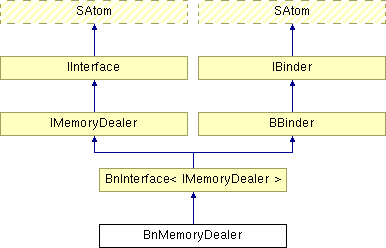|
|
Low-level data transfer.
This is the Binder's IPC primitive. It allows you to send a parcel of data to another Binder (possibly in another process or language) and get a parcel of data back. The parcel can contain IBinder objects to transfer references between environments. The code can be any arbitrary value, though some standard codes are defined for parts of the higher-level IBinder protocol (B_EFFECT_TRANSACTION, B_INSPECT_TRANSACTION, etc). The flags are used for internal IPC implementation and must always be set to 0 when calling. If your implementation of Transact() returns an error code (instead of B_OK), that code will be propagated back to the caller WITHOUT any reply data.
Reimplemented from BBinder. |

